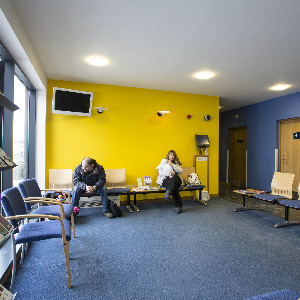NHS England has set out new proposals to reform general practice, including a major ‘value for money’ review of rent reimbursement and plans to address the recruitment and retention crisis.
Managers also say they will commission a new study to look at how to free up time in primary care and ‘move towards’ CCGs jointly commissioning GP practices with local area teams, as first reported by Pulse almost a year ago.
The recommendations are included an ‘emerging findings’ document from NHS England’s Call to Action consultation published today, which aims to reduce variation in general practice, give patients more responsive and ‘person-centred’ care and promote better health.
However, reacting to the publication, the GPC accused NHS England for ignoring the real plights facing GPs, rehashing old policies and trying to mask cost cutting as patient benefits.
Ideas included in the document include encouraging GPs to work ‘at scale’, encouraging new providers of primary care to enter the market and a major review of the current system of GP premises reimbursement.
The document said: ‘In order to support new solutions we will … work with the Government to review the current system of general practice
premises reimbursement to identify opportunities for improving value for money and promoting more innovative use of estates.’
It also reveals that NHS England will produce a ‘detailed plan’ later on in the year to tackle the current crisis in recruitment and retention of GPs and launch a new ‘strategic framework for commissioning primary care’ that will include ideas on how CCGs can commission jointly with area teams – to be published in the autumn.
How does NHS England want to reform general practice?
- Looking at a joint, collaborative approach to commissioning general practice services, with flexibilities for area teams/CCGs to design local alternatives to national contract arrangements, and other forms of contracting in June 2014
- Reviewing the current system of general practice premises reimbursement to identify opportunities for improving value for money
- Supporting practices in working at greater scale (through federations or networks) to facilitate a more effective and cost-efficient use of estates’;
- Preparing a detailed plan by summer of 2014 on NHS England’s role in ‘improving GP recruitment and retention’
- Publishing guidance on practice mergers and ‘new market entry’ in July 2014
- Publishing a strategic framework for commissioning primary care services’ in September 2014
- Launching a ‘freeing up time in general practice’ study – ‘identifying how we can go further in freeing up clinical time to provide more proactive, person-centred care and improve access’ in April 2015.
Source: Improving General Practice, A Call to Action. Phase 1 report, NHS England
The document said: ‘Developing more integrated services will depend ultimately on the leadership and cultures of the different provider organisations involved – and we are already seeing great examples of general practice starting to come together with community health services, social care and specialist services to do this.
‘To support these changes, however, we need to ensure that we commission services in a holistic way, based on the needs of a given locality. To do this, NHS England intends to move towards joint arrangements with CCGs for commissioning general practice services.’
The document adds: ‘To support this approach, we are expressing primary care allocations at a CCG population level. This will enable CCGs and NHS England to look at the resources available to spend on general practice alongside resources for hospital and community services in each locality.’
The document said: ‘Our area teams are already working with CCGs to reflect the direction of travel set out here in local strategies for primary care services, as described in our NHS planning guidance for 2014/15, Everyone Counts.’
‘But we know there is more work to do to build the national foundations for sustainable primary care, delivered at scale. We want to continue our discussions with key stakeholders on our emerging views. This period of engagement will run from March to June 2014. We intend to publish the resulting strategic framework for commissioning primary care in the autumn of 2014, covering not just general practice but wider primary care services including dental services, community pharmacy and eye health services.’
GPC deputy chair Dr Richard Vautrey commented: ‘This is a very disappointing response to an extensive consultation. It is largely a rehash of all the current DH and NHS England policies and contract agreements with little if anything new. There is no real sense that they have listened to the widespread concern about the real issues facing general practice – unsustainable workload pressures, the falling proportion of NHS funding being used for general practice, the recruitment and retention crisis and the major problems with premises which prevent practices developing their services.’
‘Instead of offering hope to practices and patients it just restates – and tries to spin them as benefits – cutting MPIG, taking funding away from PMS and using the £5 per head of CCG money that is already committed.’
He added: ‘The bottom line is general practice cannot survive on 7.42% of NHS funding and GPC called on NHS England to commit to a year on year increase. This mirrors the current RCGP campaign. This is fundamental to the future sustainability of the excellent general practice we now offer. Until NHS England commit to that we will continue to let our patients down.’
Pulse October survey
Take our July 2025 survey to potentially win £1.000 worth of tokens













